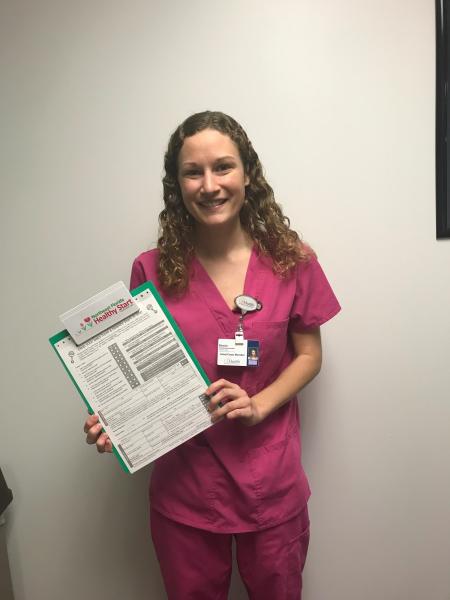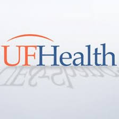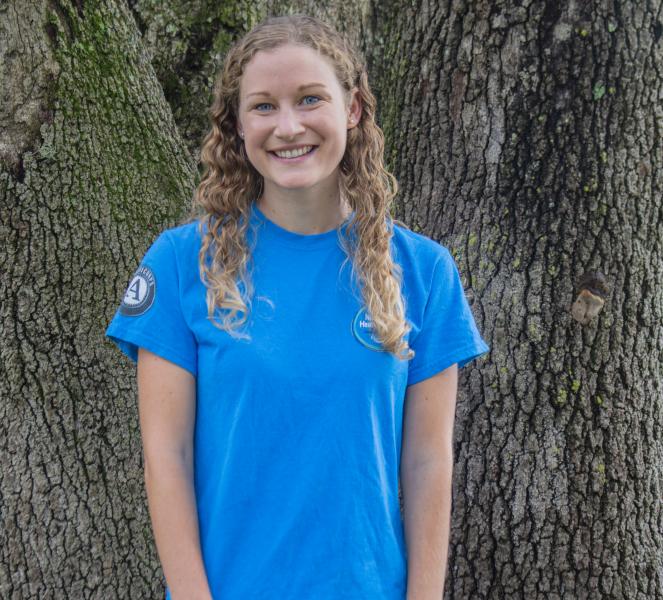Impacting Lives Through Service
 Northeast Florida has a higher infant mortality rate (7.4 deaths per 1000 births) than both the state (6.1) and the nation (5.8). Many of these deaths are the result of SUIDS, sudden unexpected infant death syndrome. SUIDS is the unexpected death of an infant under one year of age that was otherwise healthy. Recently, Northeast Florida has made it a priority to investigate these cases in monthly meetings of the fetal-infant mortality review (FIMR) board. With the staggering rates of infant mortality we see in NE Florida, FIMR made a commitment to review every single case of infant mortality in 2017 to find out where the system failed the mothers and babies. As a National Health Corps Florida AmeriCorps member serving at the UF Health Women’s Center, I have the opportunity to serve one of the region’s most vulnerable populations- women and infants.
Northeast Florida has a higher infant mortality rate (7.4 deaths per 1000 births) than both the state (6.1) and the nation (5.8). Many of these deaths are the result of SUIDS, sudden unexpected infant death syndrome. SUIDS is the unexpected death of an infant under one year of age that was otherwise healthy. Recently, Northeast Florida has made it a priority to investigate these cases in monthly meetings of the fetal-infant mortality review (FIMR) board. With the staggering rates of infant mortality we see in NE Florida, FIMR made a commitment to review every single case of infant mortality in 2017 to find out where the system failed the mothers and babies. As a National Health Corps Florida AmeriCorps member serving at the UF Health Women’s Center, I have the opportunity to serve one of the region’s most vulnerable populations- women and infants.
Through my role as care coordinator at UF Health, I perform risk assessments on both prenatal mothers and postpartum mothers. These risk assessments help me to connect mothers and babies to resources and programs in the community based on their needs in an effort to reduce their risk of infant mortality. These risk assessments are a compilation of social, behavioral, and medical factors that can make a mother high risk. While completing the assessments, every risk factor must be addressed and an intervention must be provided to the mother to assist her in reducing this risk factor. After addressing each risk factor, I provide education on infant safety, including safe sleep education and further connect the mother to community resources and programs including Healthy Start, Nurse Family Partnership, and Healthy Families amongst others. These three programs are home visiting programs that connect a case manager to the mother who will follow her throughout pregnancy and delivery until the child is 2, 3, or 5 years old depending on the program. The effort of these resources is to intervene before the system has a chance to fail.
 One of the most rewarding interactions I had in my service term was with a pregnant incarcerated mother. Every Friday, I go to the UF Health Jail Clinic and meet pregnant mothers at their prenatal appointments to complete risk assessments. I went into a jail clinic one Friday to meet an 18-year-old woman. I had reviewed her file before meeting with her and noticed she had some of the risk factors that we see in a lot of our high-risk mothers. When I met with her she was so excited to talk to me. She was familiar with the Healthy Start program and was eager to have the program for her baby. After discussion with her, I learned that she was raised in the foster care system where she was sexually abused several times. She had a history of mental illness and drug abuse as a result of these adverse childhood experiences (ACEs). She had also already lost a child to SUIDS. She explained to me that even though she was unsure if she would be allowed to maintain custody of the child, she wanted to give her child the best chance she could. My discussion with her opened my eyes. A lot of us have preconceived ideas of inmates. However, after hearing her story, I realized this was not her fault. The system had failed her from the start and she saw this baby as a chance to have a fresh start. I provided her with every resource I knew and enrolled her into Healthy Start. It is interactions like this one that make me think I am truly impacting lives during my service term.
One of the most rewarding interactions I had in my service term was with a pregnant incarcerated mother. Every Friday, I go to the UF Health Jail Clinic and meet pregnant mothers at their prenatal appointments to complete risk assessments. I went into a jail clinic one Friday to meet an 18-year-old woman. I had reviewed her file before meeting with her and noticed she had some of the risk factors that we see in a lot of our high-risk mothers. When I met with her she was so excited to talk to me. She was familiar with the Healthy Start program and was eager to have the program for her baby. After discussion with her, I learned that she was raised in the foster care system where she was sexually abused several times. She had a history of mental illness and drug abuse as a result of these adverse childhood experiences (ACEs). She had also already lost a child to SUIDS. She explained to me that even though she was unsure if she would be allowed to maintain custody of the child, she wanted to give her child the best chance she could. My discussion with her opened my eyes. A lot of us have preconceived ideas of inmates. However, after hearing her story, I realized this was not her fault. The system had failed her from the start and she saw this baby as a chance to have a fresh start. I provided her with every resource I knew and enrolled her into Healthy Start. It is interactions like this one that make me think I am truly impacting lives during my service term.

This blog post was written by NHC FL AmeriCorps member, Elyssia Johnan.
Elyssia serves at UF Health- Healthy Start as a Care Coordinator.